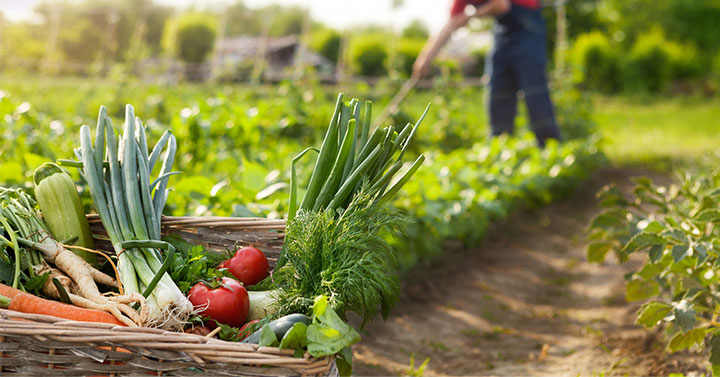
The Benefits of Organic Fruits and Vegetables
Introduction:
Organic fruits and vegetables have gained significant popularity in recent years due to their perceived health benefits, environmental sustainability, and superior taste. As antibiotics, hormones, and harmful pesticides continue to threaten conventional farming practices, more people are turning to organic produce as a safer and healthier option. In this essay, we will explore the numerous advantages of consuming organic fruits and vegetables, ranging from nutritional value and reduced exposure to toxins to the positive impact on the environment and the importance of supporting local farmers.
Nutritional Value:
One of the most notable advantages of organic fruits and vegetables is their superior nutritional value. Numerous studies have suggested that organic produce contains higher levels of vitamins, minerals, and antioxidants compared to conventionally grown alternatives. Researchers believe that this discrepancy can be attributed to the absence of synthetic fertilizers and pesticides, which allows organic plants to develop natural defense mechanisms that enhance nutrient synthesis.
Furthermore, organic farming practices foster soil health by improving its nutrient composition and microbial diversity. This translates into better absorption of essential minerals, resulting in more nutritious crops. Overall, by consuming organic fruits and vegetables, individuals can ensure optimal nutrient intake and support their overall well-being.
Reduced Exposure to Toxins:
Conventionally grown fruits and vegetables are often treated with a myriad of harmful pesticides and chemicals, which can persist on the produce even after washing. These chemicals have been associated with numerous adverse health effects, including hormonal disruption, developmental issues, and an increased risk of cancer. On the other hand, organic farming strictly prohibits the use of synthetic pesticides and fertilizers, reducing the risk of exposure to these toxic substances.
Organic farmers employ eco-friendly alternatives, such as natural predators, crop rotation, and composting, to maintain healthy plants and combat pests. As a result, consumers can enjoy fruits and vegetables free from harmful residues, leading to a healthier diet and a decreased risk of pesticide-related health complications.

Environmental Sustainability:
One of the compelling reasons to opt for organic fruits and vegetables is their positive impact on the environment. Conventional agriculture often relies heavily on synthetic fertilizers, which degrade soil quality and contribute to water pollution. These chemical fertilizers can leach into water bodies, leading to eutrophication and the destruction of aquatic ecosystems.
In contrast, organic farming promotes sustainable practices that prioritize soil health and conservation. By avoiding synthetic fertilizers and adopting organic practices like crop rotation, composting, and cover cropping, organic farmers can preserve soil fertility, prevent erosion, and promote biodiversity. Organic agriculture also supports natural habitats and reduces greenhouse gas emissions, contributing to the fight against climate change.

Supporting Local Farmers:
Purchasing organic fruits and vegetables directly supports local farmers and their communities. Organic farming often involves smaller-scale, family-owned operations that prioritize sustainable practices and responsible land stewardship. By choosing organic, consumers promote fair trade, foster economic growth in their local region, and reduce the carbon footprint associated with long-distance transportation.
Additionally, buying organic produce enhances food security by encouraging diversification of agricultural activities. Organic farming encourages a wider range of crops, thus reducing monoculture vulnerabilities and the potential for crop failures due to pests or diseases. This creates a more resilient agricultural system that can adapt to changing conditions and meet the demands of a growing population more sustainably.
Conclusion:
In conclusion, the benefits of consuming organic fruits and vegetables are vast and encompass health, environmental sustainability, and support for local farmers. By opting for organic produce, individuals can enhance their nutrient intake, reduce exposure to harmful toxins, and contribute to a greener and more sustainable planet. It is vital to remember that our food choices have a significant impact on our health and the environment, and investing in organic farming practices can be a step towards a healthier and more sustainable future.
All Categories
- Agricultural Methods
- Agriculture and Women Small Farmers Rights Awareness
- Climate Change
- Disable and Human Rights
- Disable Jobs
- Donation
- Education
- Health Issues
- Organic Foods
- Organic Vegetables
- Orphans Children
- Plastic production and disposal
- Services
- Sinking in Scarcity
- Success Stories
- Uncategorized
- Waste Management
- Women Rights
- Youth Empowerment




